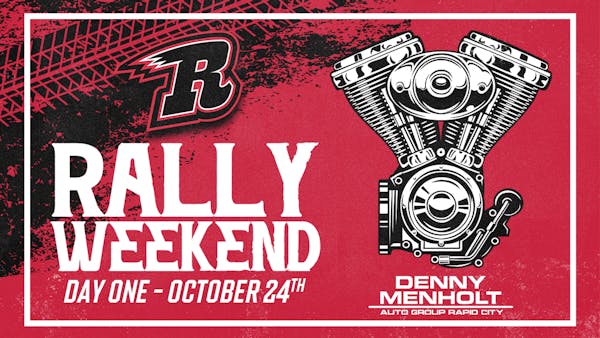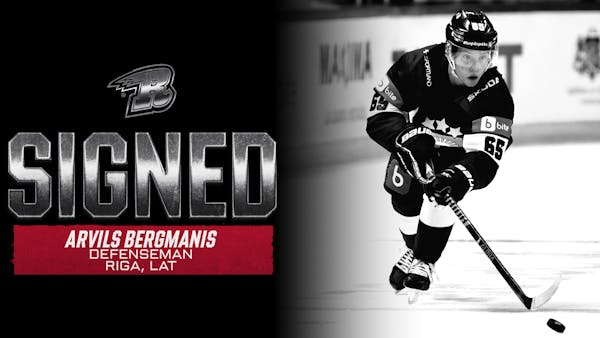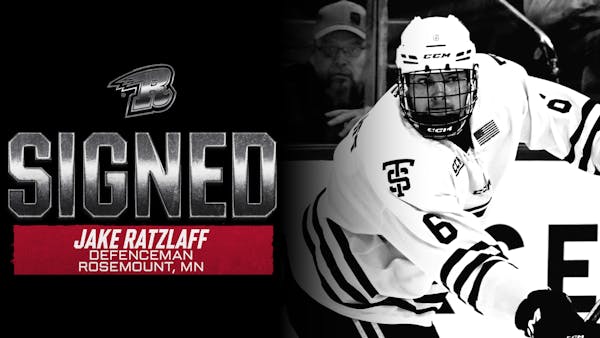The poster caught his attention.
Garrett Klotz was finished with his workout for the day and set to go home to his wife and infant daughter. But, a poster on the YMCA wall advertising the Southern Hills Triathlon caused him to stop. Running a triathlon had always been on his bucket list, so he snapped a picture with his iPhone and headed home.
Later that night, he signed up.
“I was feeling pretty motivated that day,” said Klotz, laughing. “I took a couple scoops of pre-workout, so I was feeling pretty good.”
This happened in late July. From the time of his registration to the morning of September 4, when he would have to start the one-mile swim at 7:30 a.m., Klotz had about six weeks to train. Not the most daunting of tasks for a professional hockey player with 595 games of experience who was already tuning his body up for what will be his 14th professional season. One major problem—he didn’t have a bicycle that would work for the grueling, 24-mile ride that serves as the second leg of the journey.
So, Klotz started to cruise Facebook Marketplace, looking for a road bike to replace his mountain bike. This became a daily routine, and one that yielded no results until his wife hit pay dirt about one week before the race, finding a suitable bike that was on sale for $20.
“It had been sitting outside for the past year, collecting dust and getting all rusty,” said Klotz.
Klotz sprayed WD-40 on the chain, put some air in the tires, and started using his new road bike to commute to the gym every day, hoping to get used to riding it before it would be put through the 24-mile test.
That turned out to be a very good idea, because after all that time sitting idle, the bike needed some work.
“I only had a week to get used to it, and within the first week, both of the tires had blown out,” said Klotz with a laugh. “I guess the tubes were shot in both of the tires. So luckily, they went on me, and I got brand new ones in before the race.”
Klotz continued his training, riding the bike every day to the gym, where he would then spend another 30 minutes on the stationary bike or extra time on the treadmill. Then, he’d get on with his typical workout, what he did every year to prepare his body for the grind that is a 72-game ECHL season.
“He has always been the hardest working guy in the gym,” said Rush assistant coach Jeremy Gates. “I played with Garrett Klotz in Fort Wayne and went to a couple gym sessions with him, and my body was definitely sore the next day. He is probably the hardest worker in the gym I have ever seen.”
On the morning of September 4, Klotz stood on the beach of the Angostura Reservoir, ready to hit the water. He had an audience; his wife and daughter had come to cheer him on, and Rush head coach Scott Burt had gotten up early to watch him swim the first leg. Klotz looked around at his fellow competitors and noticed a difference in their wardrobes.
“When I first got there, I saw everybody kind of gearing up,” said Klotz. “I only had my compression shorts on and my goggles, and everybody else there had their big, one-piece wet suits and speed goggles. Everyone looked like they knew what they were doing, and I was the only one out there shirtless with my compression shorts.”
Soon, the starting gun sounded, and Klotz and the rest of the competitors sprinted toward the water and dove in. And quickly, despite his superior athleticism, the Sheriff was in trouble.
“I should have done a little bit more swimming [while training], because I almost drowned doing that mile,” said Klotz. “I tried to keep pace for the first 30 seconds with the regular freestyle stroke, pushing myself. And then I looked up and everybody was probably like 20 feet ahead of me, and I was like ‘there’s no way I can sustain this for the whole mile.’”
Klotz transitioned to a breaststroke, which proved much easier to maintain. He completed the mile swim in 46 minutes and 10 seconds.
“Yeah, he kind of was maybe left behind,” said Burt. “But I was glad he didn’t bring his water wings out, and he actually swam it, so he was good.”
Once he hit the biking portion of the race, Klotz’s training, athleticism and competitive nature started to kick in.
“I would see a person ahead of me, and I’d always just try and catch him,” said Klotz. “I was just trying to chase guys and catch up to guys after they left me in the dust on the swim.”
The rules of the Southern Hills Triathlon state that all participants must wear a helmet during the biking portion of the race. Klotz, however, did not own a bike helmet. So he did what any reasonable hockey player would do. He took the visor off an old helmet from his days playing in the Central Hockey League and wore that.
“I don’t own a bike helmet, so that was really my only option,” said Klotz. “I popped it on my head, didn’t say anything to the race officials, and they didn’t say anything to me, so off I went.”
He spent the next two hours charging past his competitors, first while wearing that old hockey helmet on that $20 bike from Facebook Marketplace and then by foot during the 6.2-mile run that served as the final leg of the race. He pushed his body to the limit the entire way, draining every bit of reserve energy he had.
“It was like the third period of three games in three nights,” said Klotz. “It was tough, but I had my wife out there and my kid to support me, so that kind of helped me. I was thinking about them while I was doing it.”
Klotz’ goal was to finish the triathlon in under three hours. His final time? Two hours, 48 minutes and 21 seconds.
“He’s 6-6, 240 pounds, and he is shredded,” said Gates. “There are not too many people that you could see like that who can do running, biking, swimming and play professional hockey at a very high level. To see his results, we were so proud of him.”
Despite all the pain and the sheer exhaustion that he put himself through, Klotz is already talking about his next triathlon and how he can improve upon this one. He plans to spend more time in the water during his training, with a goal of getting his swim time below 35 minutes.
“I enjoyed the competitive side of it and seeing how far I can push myself,” said Klotz. “I think next summer, after the season, I’ll definitely be doing the Southern Hills Triathlon again, and maybe looking into other ones around the area to see what’s out there.”
And perhaps his coach will be lined up next to him for the 2022 edition.
“I told him I would do it next year,” said Burt, who takes an annual fishing trip to Alaska each year around the same time the triathlon is held. “That will give me a little bit of time to practice, but if I’m around, I will give it my best to do it next year.”





















 Adirondack Thunder
Adirondack Thunder
 Allen Americans
Allen Americans
 Atlanta Gladiators
Atlanta Gladiators
 Bloomington Bison
Bloomington Bison
 Cincinnati Cyclones
Cincinnati Cyclones
 Florida Everblades
Florida Everblades
 Fort Wayne Komets
Fort Wayne Komets
 Greensboro Gargoyles
Greensboro Gargoyles
 Greenville Swamp Rabbits
Greenville Swamp Rabbits
 Idaho Steelheads
Idaho Steelheads
 Indy Fuel
Indy Fuel
 Iowa Heartlanders
Iowa Heartlanders
 Jacksonville Icemen
Jacksonville Icemen
 Kalamazoo Wings
Kalamazoo Wings
 Kansas City Mavericks
Kansas City Mavericks
 Maine Mariners
Maine Mariners
 Norfolk Admirals
Norfolk Admirals
 Orlando Solar Bears
Orlando Solar Bears
 Rapid City Rush
Rapid City Rush
 Reading Royals
Reading Royals
 Savannah Ghost Pirates
Savannah Ghost Pirates
 South Carolina Stingrays
South Carolina Stingrays
 Tahoe Knight Monsters
Tahoe Knight Monsters
 Toledo Walleye
Toledo Walleye
 Trois-Rivières Lions
Trois-Rivières Lions
 Tulsa Oilers
Tulsa Oilers
 Utah Grizzlies
Utah Grizzlies
 Wheeling Nailers
Wheeling Nailers
 Wichita Thunder
Wichita Thunder
 Worcester Railers
Worcester Railers